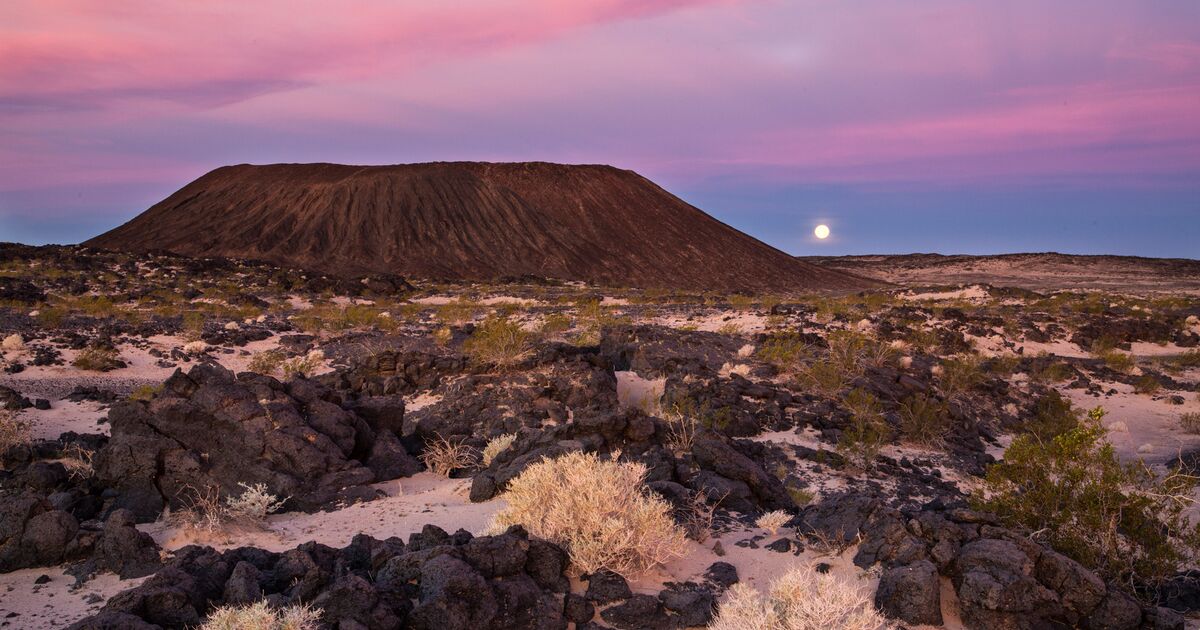Judge Vacates Approval for Cadiz’s California Desert Water Grab
Victory
—Pipeline skipped environmental review, would drain Mojave of precious water
Contact
A federal judge has vacated a U.S. Bureau of Land Management (BLM) decision that would have allowed Cadiz Inc. to repurpose a mothballed oil-and-gas pipeline to drain a large aquifer in the Mojave Desert.
Tuesday’s order from U.S. District Judge George H. Wu responds to a BLM motion seeking to vacate and remand the agency’s December 2020 approval of the pipeline, issued in the Trump administration’s final days.
The approval violated several federal laws by failing to conduct needed environmental and historic preservation analysis for the project or consider its potential harm to federal public lands. The right-of-way would have facilitated Cadiz’s groundwater-mining scheme to drain ancient aquifers under the Mojave Desert with a pipeline crossing Mojave Trails National Monument and other protected public land in southeastern California. The same decision was filed in a related case brought by the Native American Land Conservancy and the National Parks Conservation Association.
“The Trump administration’s decision to give Cadiz these rights-of-way without any environmental review was clearly illegal,” said Greg Loarie, an attorney at Earthjustice representing the conservation groups. “The court did the right thing in granting the Bureau of Land Management’s request to undo the flawed decision that would have devastating impacts on the Mojave Desert.”
Cadiz’s project would pump water from a fragile aquifer under the Mojave Trails National Monument and near the Mojave National Preserve. In March 2021, conservation groups sued to challenge BLM’s approval of the right-of-way to facilitate the pipeline project.
“We’re pleased the court vacated this illegal Trump-era decision, which would have allowed this massive water pipeline to move forward without the necessary environmental review,” said Lisa Belenky, a senior attorney at the Center for Biological Diversity. “Cadiz’s water-privatization scheme would dry up irreplaceable desert springs and seeps that are crucial to wildlife, even more so now because of climate change. These public lands and resources must be protected.”
Hydrologists from the U.S. Geological Survey have found the pipeline’s water use unsustainable. They also found that Cadiz’s privately funded study vastly overstates the aquifer’s recharge rate.
“Today’s decision will give the BLM the opportunity to do the right thing and prevent disruptive pumping and transport of groundwater — precious water that our fragile desert ecosystem and the species who call it home depend upon for their survival,” said Jeff Aardahl, a senior California representative for Defenders of Wildlife. “Judge Wu’s decision will give wildlife a fighting chance in the face of our ongoing, historic drought.”
The water-pumping project threatens to dry up life-sustaining desert springs in the monument and the preserve, hurting vegetation and key habitat for iconic desert wildlife, including desert tortoises, bighorn sheep, Mojave fringe-toed lizards, and kit foxes.
“This project should never have been given a pass,” said Joan Taylor, vice chair of Sierra Club’s California/Nevada Desert Committee. “The BLM now acknowledges that pumping and exporting 16 billion gallons a year from a desert groundwater basin requires some environmental scrutiny, and today’s decision means that careful environmental review will be required before any new decision is made.”
Conservation groups have filed several lawsuits challenging the Cadiz water project, including one challenging San Bernardino County for failing to provide environmental review and violating its own groundwater ordinance.
In 2019, the groups won a lawsuit challenging an earlier Interior Department approval of an existing railroad right-of-way for the pipeline. The judge ruled that the Trump administration had broken the law when it reversed two Obama administration decisions and had wrongly concluded the 43-mile pipeline did not require BLM permits or approvals.
In November 2020, the National Congress of American Indians adopted a resolution opposing the Cadiz project, joining numerous California desert tribes in this fight for indigenous rights and cultural survival threatened by the Cadiz project.
“This Court ruling blocks the Cadiz project from harming the sacred ancestral lands and water sources that tribal peoples in the California desert region depend greatly on for their spiritual and cultural practices and way of life,” said Michael J. Madrigal, President of the Native American Land Conservancy. “We thank the Biden administration for its support and recognizing that our peoples have been here since the beginning of time and that we continue to visit, gather, and utilize these special areas in the desert for our cultural survival.”
“Cadiz has failed to materialize for decades because it would be a major environmental justice disaster, inflicting harm on Tribal nations and California communities that are already feeling the impacts of drought and climate change,” said Chris Clarke, Ruth Hammett Associate Director of the National Parks Conservation Association’s California Desert Program. “We thank the Biden administration for protecting our scarce desert water and beloved national parks from this irresponsible water mining scheme.”

Additional Resources
About Earthjustice
Earthjustice is the premier nonprofit environmental law organization. We wield the power of law and the strength of partnership to protect people's health, to preserve magnificent places and wildlife, to advance clean energy, and to combat climate change. We are here because the earth needs a good lawyer.